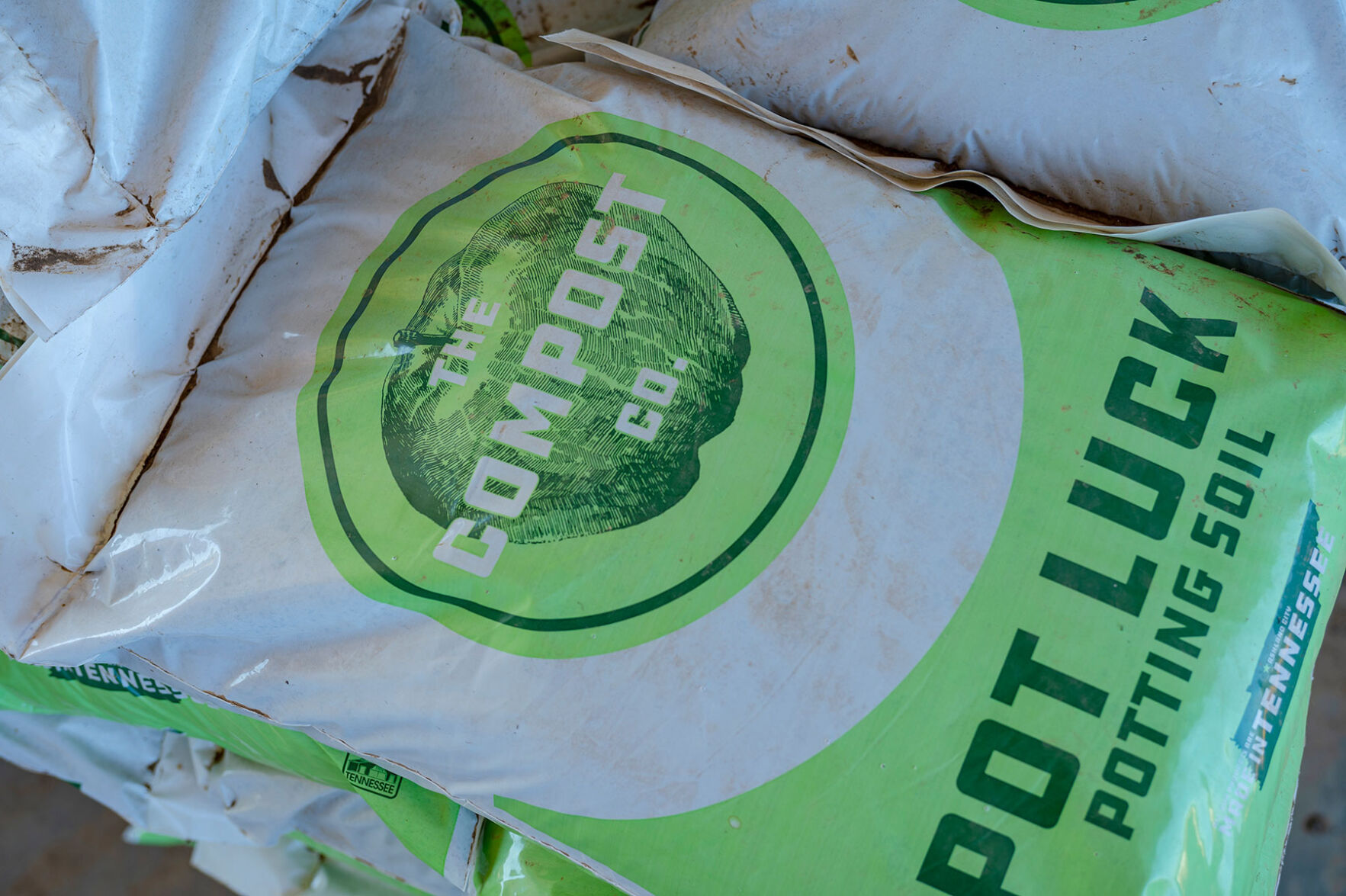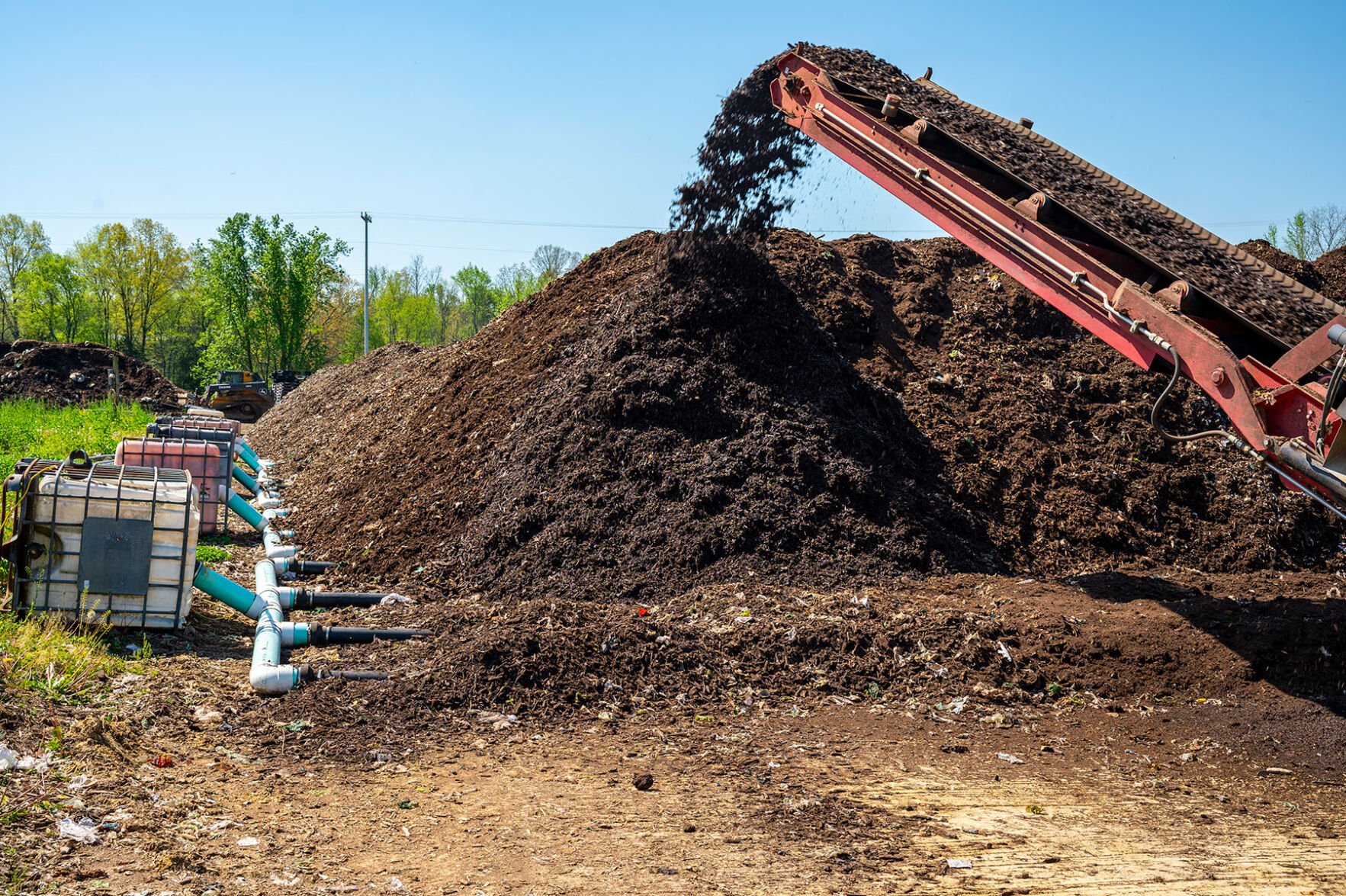“Nashville is full!”
It’s a common refrain among long-term residents who feel like the city is starting to burst at the seams. While it might make for a decent T-shirt slogan, the phrase is also applicable when it comes to Nashville’s solid waste management issues.
Construction and demolition waste along with food waste make up the majority of Nashville’s contribution to the massive Middle Point Landfill in Murfreesboro, a facility that is probably within a few years of reaching capacity. Nobody wants a new landfill in their backyard, so the trash will probably have to travel even farther away from Davidson County for disposal. With that move will almost certainly come additional costs, which could lead Metro to start charging by the pound for trash pickup in the Urban Services District instead of providing free weekly service, which Metro Nashville Waste Services has done for decades. In 2021, waste collection was moved from Metro Public Works to Metro Water Services. Do you know what Water has that Public Works does not? They already have the mechanisms in place to bill Nashville residents directly for services based on consumption; that would make it an easy add-on to include trash with your water bill.
The Metro government made a step to address the city’s solid waste issues in 2019 with an organized Zero Waste initiative, which calls for diverting 90 percent of Nashville waste from landfills. The plan’s goals also include increased recycling, food waste reduction and recovery, and a focus on composting. A separate program to address construction and demo waste has been established, and public education programs aim to increase awareness of the issue.
According to Metro, more than 80 percent of Davidson County’s waste goes to landfills. A new pilot program aims to reduce that number while educating the public about disposal options. The initiative is managed by Compost Nashville, a program that has diverted more than 10 million pounds of waste from landfills since 2014 through a combination of residential and commercial composting programs. The commercial portion of the effort picks up organic waste from local restaurants and large cafeterias. Some of the city’s favorite restaurants are part of that program, including Miel, Butcher & Bee, Lyra, Bastion and Peninsula. Used coffee grounds are an excellent addition to compost, so local shops such as Frothy Monkey, Bongo Java and even some Starbucks locations contribute their leftovers to the effort.
Compost Nashville doesn’t ascribe to the “Nashville is full” attitude. Instead, the program’s mottos include “Treasure not trash” and “Grow food, not landfills.” Compost Nashville works with Ashland City-based The Compost Company as their diversion partner. The 37-acre facility was founded in 2012 by brothers Clay and Jeffrey Ezell along with Ed Wansing, and started out with multiple Middle Tennessee Walmart locations as their primary customer. Previously, waste from the big-box store was shipped all the way to Indianapolis or Little Rock for processing, contributing a lot of needless carbon output.
The Compost Company works with larger commercial customers in Middle Tennessee in addition to Compost Nashville to provide organic waste collection and drop-off services. The company also offers convenient composting options for large events like concerts and festivals. (They also helped out with the Scene’s recent Iron Fork event to ensure that compostable waste didn’t end up in the landfill.)

The Compost Company
Working with a small staff of fewer than a dozen full-time employees, The Compost Company annually converts millions of pounds of organic waste into compost, mulch and soil blends that the company sells to garden centers, landscapers, contractors and individuals. If you’ve ever tried to start your own compost pile at home, you probably discovered that it’s hard to keep it healthy and percolating. Thanks to the volume it takes in, The Compost Company can ensure that its small mountains of material maintain the proper mix of organics, moisture and aeration to naturally maintain the 140-plus-degree temperatures necessary to break down collected components into nutritious compost.
I visited The Compost Company’s Ashland City facility and was immediately struck by how wonderful it smelled. Well, the first stop in the process was the “tipping pad,” where newly arrived materials are screened for contaminants before being added to one of the percolation piles. So, yeah, that part smelled pretty much like garbage. But as I walked deeper through the production site to where more mature piles were breaking down waste, it began to smell like sweet mushrooms — the aroma of happy bacteria doing their jobs of oxidative decomposition. This also means that their retail products don’t smell like manure, because the inputs are cleaner, and the outputs don’t need the addition of cow patties.
Metro Nashville’s yearlong trial was funded entirely through the largesse of one anonymous donor with the goal to help expand residential composting in Nashville. More than 3,000 people applied for the 750 spots in the program, which offered the same service that many Nashvillians have paid $39 a month for: weekly pickup of one 4-gallon bin. In return for the free subscription, participants in the pilot program agreed to participate in online surveys and Zoom focus groups throughout the year.
The new program also included expanding Compost Nashville’s service area to include all of Davidson County, as well as part of Williamson County. I’ve personally been a part of the pilot since the beginning of the year, and it has been a pleasant experience full of surprises. My first awakening: discovering the vast variety of materials that can go in my bin. In addition to the obvious vegetable trimmings and those spoiled bunches of scallions and parsley that I didn’t need to buy, Compost Nashville will accept a plethora of unexpected items for processing. They’ll take bones, meat, shrimp shells, pet hair, dryer lint and even all-natural clothing, provided that you are certain no inorganic fibers are included.

The Compost Company
If you do accidentally include something verboten in your bin, the operator of the van that collects and weighs your materials will probably send you a gently shaming email with a photo of the offending object and a reminder to, for instance, cut the buttons off next time. Every week, we discover another benefit of composting in our household. In addition to the smug self-satisfaction of doing the right thing, we’ve enjoyed the fact that our trash doesn’t smell nearly as bad now — after all, roughly 6 pounds of organic materials aren’t sitting there until trash day each week.
The program includes a smaller kitchen bin that can sit right on the counter to collect the leftovers from a good mise en place session. If the bag in the mini bin begins to fill up (or we know those fish bones or the mysterious bag of offal stuffed inside a whole chicken will probably start to reek soon), we just take the liner out of the bin and pop it in our chest freezer. Then come Tuesday morning, all we have to do is drop the “waste-cicle” in the big bin before placing it on the sidewalk. Compost Nashville customers can also request a free bag of compost to be dropped off with their new weekly bin one or two times per year as a bonus for participating in the program.
In a larger sense, the benefits of the trial include opening up new pickup routes that could encourage new users to take advantage of Compost Nashville’s service. More customers make for a larger and more efficient operation within the entire system and could extend the lifespan of nearby landfill options. Less organic matter in those landfills also leads to a reduction of methane — a particularly disruptive greenhouse gas. There is also hope that the pilot program could be extended, or could include a new batch of participants in the future.
Micah Puncochar is one of the co-founders of the organization, and he’s proud of helping to change how the city views food waste. “We’re returning nutrients to the soil for food production by local farmers,” he shares. “Food waste doesn’t have to be waste. We’re helping make Nashville food more nutritious.”
[Writer's note: To clarify, Compost Nashville and Metro Government are separate entities. Metro Nashville Waste Services contracted Compost Nashville to provide collection and hauling of food scraps for composting.]






